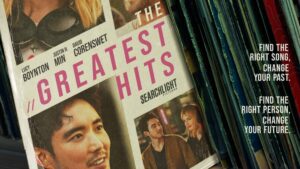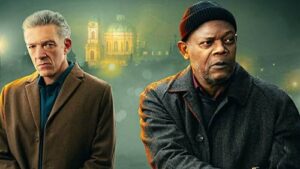As We Speak 2024 Movie Review

J.M. Harper’s debut documentary “As We Speak” delves into the contentious issue of how rap lyrics are weaponized in courtrooms, presenting a compelling narrative through a blend of academic analysis and personal storytelling. Drawing from Erik Nielson and Andrea Dennis’s book “Rap on Trial: Race, Lyrics and Guilt in America,” the film is guided by hip-hop artist Kemba, who travels across the United States and to the U.K. to explore the intersection of music, culture, and the legal system.
Throughout its exploration, “As We Speak” confronts the stark reality that the intricacies and artistic merit of rap lyrics often hold little weight in a legal landscape still plagued by racism and prejudice. Through interviews with legal experts like USC law professor Jody Armour and MSNBC legal analyst Ari Melber, the documentary paints a damning picture of how prosecutors exploit rap lyrics to secure convictions, particularly targeting young black defendants.
A standout moment in the film is its visualization of Alan Dunbar’s experiment, which reveals inherent biases in how rap lyrics are perceived compared to other genres. By juxtaposing images of individuals from different backgrounds reading the same lyrics, Harper effectively illustrates the racialized lens through which rap music is often judged in the legal system.
The documentary also shines a light on the personal stories of artists like Killer Mike and Mac Phipps, whose experiences underscore the real-life consequences of legal overreach. From the crack epidemic in Atlanta to wrongful convictions in New Orleans, “As We Speak” exposes the systemic flaws that perpetuate injustice within the justice system.
As Kemba navigates through various cities, including Los Angeles, Chicago, and London, the film delves deeper into the complex relationship between rap culture, law enforcement, and social surveillance. Criminal defense attorney Alexandra Kazarian provides crucial insights into the economic incentives driving plea bargains, highlighting the harsh realities faced by defendants caught in a broken system.
In its poignant final scene, “As We Speak” leaves viewers with a lingering question: What will happen to those who choose to stand up for their rights in the face of systemic oppression? Through powerful storytelling and incisive analysis, the documentary offers a sobering glimpse into the pervasive influence of bias and prejudice in the criminal justice system.




